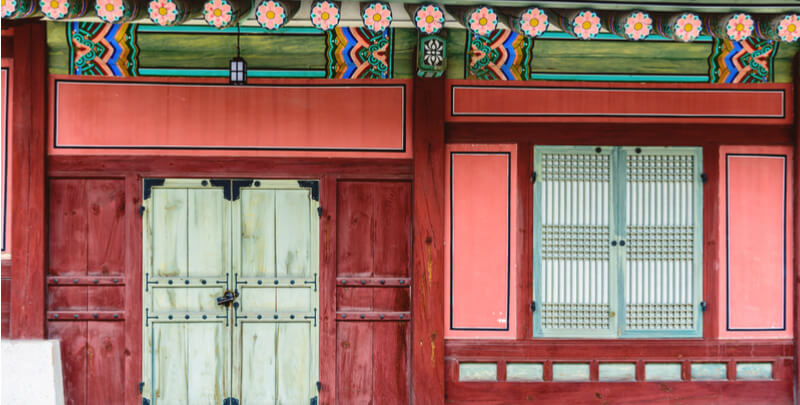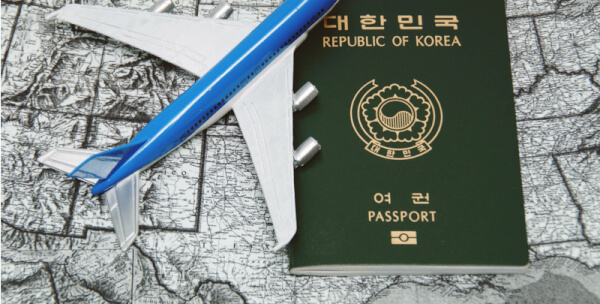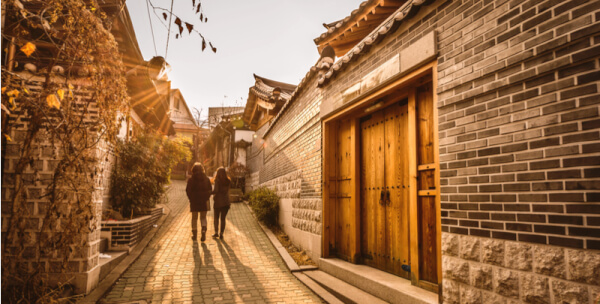Renting in South Korea: Everything you need to know
Thinking about moving to South Korea? Find out what you need to know about renting in South Korea in this guide.

Seoul has a large expat community drawn from all around the world, thanks to the large numbers of global businesses based there. IBM, Google and Toyota, for example, all have city centre offices. Add in Seoul's US army base, a large UN and diplomatic community, and a world class university, and you have a vibrant mix.
Seoul is welcoming to newcomers, despite the differences in language and culture, and has rental prices some 20% lower than in Tokyo, and 10% below Shanghai’s benchmark. It’s worth bearing in mind, though, that life isn’t cheap in Seoul. Pricey groceries and restaurants contribute to an overall cost of living that’s way above life somewhere like China, and only slightly cheaper than Tokyo. The unusual ‘key money’ system can also mean you need to put down a huge deposit for your apartment in Seoul. That said, rents are, at least, reasonable. A one bedroom apartment in the city centre will set you back just over $800 on average a month, excluding utilities, while a three bedroom place in the centre, comes in at somewhere in the region of $2100.
If you’re just making plans, it’s important to take into account all the costs associated with your move to South Korea. Compare the cost of living in Seoul with that of your home town using a comparison site such as Numbeo, and check out this quick guide to renting in Seoul to find the perfect place for you.
Although there are several different options when it comes to housing in Seoul, some are more suited to families, some will work best for young professionals, and others for students.
The best choice of accommodation in Seoul will depend to an extent on the length of time you expect to be there, and whether you’re looking for a family home or a city pad. Villas, which are usually low rise and in residential areas, and apartments (knows as ‘aparts’ for short) are usually offered unfurnished for longer leases. These are aimed at families and may be in the city centre or in one of the suburbs further out. Villas that appeal to the expat community are often in older buildings, which have been subsequently renovated, while apartments are often available in high rise, newer blocks closer to the Han river. It’s still possible to find central apartments which are large enough for a family, if you don’t mind sacrificing the outside space available in the suburbs.
Furnished accommodation, on the other hand tends to be in officetels or short-term rentals. Officetels are high rise buildings which have business and office premises on the lower floors, and apartments on the upper floors. If you’re only going to be in town for a relatively short time, then you can find a short-term rental with a higher monthly rent but with full furnishing.
If you’re in Seoul to study then your first stop for accommodation should be the university. In most cases, for international students, on campus accommodation is provided by the university, and gives a handy base near campus.
You could also look for a goshiwon, which is effectively a basic dormitory style room, with simple furnishings. These are usually aimed at students and won’t allow guests (or parties). If you’re not sure whether this style of living is for you, check out this helpful blog and video tour explaining one expat’s goshiwon life.
Private rentals tend to be fairly expensive, so for students or those looking to find a cheaper deal, a flatshare might be a better option. Flat shares are more ‘one off’, so looking through your contacts and friends is a good start in addition to joining Facebook groups like Housing in Seoul, which specialises in flatshares.
There are several different Facebook options, but landlords may post flat share offers in several different places. Being quick to respond, honest and straightforward in your dealings will reap the best results.
Naturally, where you choose to rent in Seoul will be largely dictated by where your job or university is. If you’re moving with family, then it’s also worth taking into account the location of your chosen school in Seoul. And of course, budget also plays a part in the decision process.
As you might expect, the further away from the heart of town you go, the more affordable the rents. You can get more for your money if you’re prepared to have a bit of a journey into the city, and with a strong public transport system, this is a good option for the budget conscious.
Seoul is divided into districts, known as gu, which are then further subdivided into neighbourhoods called dong. So for example, you might hear about a neighbourhood called Daechi-gong, which is located in the district Gangnam-gu.
Seoul city centre is split north-south by the Han river, with the northern central districts traditionally popular with expats. Different neighbourhoods in this district have distinct characters and are popular with different expat groups. For example, the American army base means that the neighbourhoods of Itaewon-dong and Haebangchon-dong are well serviced for English speakers, with large and cosmopolitan expat communities. On the other hand, Ichon-dong has a large Japanese community, and the French school has drawn a large number of French expatriates to Bangbae-dong.
If you’re looking for more space, the areas of Songbuk-dong and Yonhi-dong are good bets. Although there’s a longer commute to the centre, these suburbs are affluent with large, spacious homes and outside areas to enjoy.
The south of the Han river is more newly developed than the traditional north side, but popular with young professionals, and an increasing number of foreign workers. The most popular district this side of the river is Gangnam-gu (yes, that Gangnam, made famous by Korean pop giant PSY). There are a number of international businesses based here, as well as good shopping facilities, and the COEX exhibition centre. Within Gangnam-gu, the Daechi-dong is particularly popular with expats.
If you’re going to attend Seoul national university, then you might well find that on campus accommodation is provided for you. The university provides rooms for most international students, across their various campuses.
If you can’t find a place on campus, or would rather live elsewhere in the city, the university can provide ideas and information on the types of Seoul accommodation suited to students, including homestay options. The university also lays on a shuttle bus service from Bongcheon-dong and Shillim-dong, to the campus.
Although it’s possible to find a rental place in Seoul without having a broker or agent, the language difficulties and unfamiliar system mean that most expats do turn to a specialist of some kind to help them find their perfect home.
If you’re using an agent, there’ll be a fee for both you and the landlord, which is subject to a legal minimum amount. Make sure you know what your agent will charge before you start working with them. If it’s an amount above the legal minimum limit then you can negotiate to bring this number down before you start viewing properties. Here are some resources to help you find an agent:
Finding a flatshare, or getting someone to join you in renting a larger place, is often must successfully done by word of mouth. Don’t be afraid to ask around your office or local friends, and ask them to make recommendations to help you find the perfect place. Otherwise, try these resources:
It can feel daunting if you’re just setting about finding the right place in another country and culture. Here are some of the things that can help you be more prepared.
This is probably the most unusual aspect of the housing rental market in Seoul, and one that catches many expat arrivals unawares.
In many cases, landlords in Seoul will offer their place under the Jeonse system. Literally, this means ‘paid in full’. In this case, you’re asked to pay a deposit upfront of some 40-90% of the value of the home (that’s a whole lot of money, if you’re wondering). However, there’s then no monthly rent to pay, and the landlord takes the interest from the deposit instead. Ideally, the cash is held in a separate bank account, which can not be accessed without both you and the landlord’s signature, to ensure its safety. At the end of the tenancy the deposit is returned. However, naturally, handing over a large sum of money to someone you don’t know in an unfamiliar environment isn't the first choice for every expat, even if you happen to have a huge sum of cash at hand to do so.
The alternative is the Wolse system under which a smaller initial deposit (known as ‘key money’) is paid, with a monthly rent on top of that. Sometimes landlords will be flexible about which of these options is available for a given apartment, but don’t take this for granted. Talk to your agent and make sure you’re clear about which system you’re prepared to go with. In either case, it’s well worth checking if your employer will help with the upfront deposit, if you’re negotiating a relocation agreement.
If at all possible, it’s a good idea to have local help when you look for a place, because not all realtors or landlords will speak English. Often, businesses employing expats will support the process. Nonetheless, even if you don’t speak any Korean yet, it can help to have a few words to hand when you’re trying to find your perfect rental in Seoul. Here are a few terms you’ll see:
Contracts for housing in Seoul are usually arranged on a two year basis, which is confirmed in writing, after which they can be renewed. If you’re paying rent then you can expect the amount to be reviewed and renegotiated at this stage, too. Most tenancies on the open market are at least two years long, and usually there will be penalties for breaking a tenancy agreement early. This might mean that the landlord withholds cash from your deposit equivalent to the amount or rent you'd have otherwise paid, for example.
Particularly if you’re handing over a large amount of money upfront as a deposit, make sure you’re very clear on the contractual details for the end of the tenancy. You’ll probably be responsible for paying for any damage to the property during the time you’re there, so get an agreement about how inventory will be completed and what penalties are allowed.
The final step is to take your lease agreement to the registry office (등기소) and get an official record of the deposit paid, called a Hwak-jeong-il-ja (확정일자).
In most cases, you’ll negotiate with a landlord via your agent, broker or consultant. However, if you’re talking directly to the landlord, then it’s really important to consider cultural norms to avoid falling out. Landlords in Seoul might well be from the older generation, and should be treated with respect. If you’re negotiating on price, be tactful, and consider what you can offer in exchange for your requests. For example, if you don’t have the cash to lay down the full key deposit asked for under the wolse system, then you can offer a higher monthly payment instead.
Good landlords are the majority, but in Seoul, as in any other city, you’ll also find your share of unethical individuals or agents. If you’re paying a large upfront deposit, make sure your broker does due diligence research to check the landlord isn’t in debt. You should also check out how the cash you hand over will be stored during the tenancy - ideally in a separate account specifically for the purpose.
You can buy yourself some time by taking a short-term place in a hostel or hotel at first to research the areas you want to live in, and ideally have a friend along with you when viewing flats to make sure you’re not overwhelmed with information.
Don’t forget that many Seoul apartments are rented out by word of mouth. If you're in Seoul for work, then make sure your colleagues and local friends know you’re looking. You might find that they can hook you up with a place with a friendly landlord without incurring agent fees.
You might find that you need to make a deposit payment before you have opened a local bank account, or even arrived in the country, to secure your new home in Seoul. If you’re going with the jeonse system, this could be a large amount of money, which you need to convert from your home currency to KRW.
If you do need to transfer your hard earned cash, it’s worth remembering that your home bank might not offer the best value when it comes to making an international money transfer. Often banks will add hidden fees by using a poor exchange rate, even with their own account holders. Instead, try a specialist service like Wise to make your payment directly to your new landlord or agent, with no hidden costs and a fair exchange rate, known as the mid-market rate.
Be wary of common scams, such as properties offered for rental without proper contracts, or landlords or agents who ask for fees for a service you don’t want or need. It’s worth knowing, also, that some estate agents have long term relationships with landlords, and may be paid a fee to show their apartments to clients. If you think your realtor is deliberately showing you places which don’t suit your needs, then this could explain the issue - and it might be time to find a new agent.
Before you sign a contract, you should do some due diligence, or have your consultant make some checks if you’re using one. The most important thing is to be sure that the landlord’s name according to the contract is the same as the person registered with the authorities as owning the property. You should also check if the property is being used as collateral against any existing loan. If it is, and the landlord falls into arrears, your deposit could be at risk. To protect against this, you must make sure your payment is registered, and you get a Hwak-jeong-il-ja (확정일자). This means that in the unlikely event that your landlord declares bankruptcy, your deposit becomes a priority payment once his assets are sold.
Checking in advance of signing a contract should avoid any issues later down the line. If you have problems, or questions, then the government funded Seoul Global Centre is a good place to turn. They offer advice for foreigners on all aspects of settling into Korean life, and can provide counselling remotely or in person at their office in the city.
Renting a home in Seoul can feel quite alien. However, with some local help from a reputable agent or your employer, you can get your dream home sorted out fairly easily, and start your new life in South Korea. Good luck!
*Please see terms of use and product availability for your region or visit Wise fees and pricing for the most up to date pricing and fee information.
This publication is provided for general information purposes and does not constitute legal, tax or other professional advice from Wise Payments Limited or its subsidiaries and its affiliates, and it is not intended as a substitute for obtaining advice from a financial advisor or any other professional.
We make no representations, warranties or guarantees, whether expressed or implied, that the content in the publication is accurate, complete or up to date.

Thinking about moving to South Korea? Find out what you need to know about renting in South Korea in this guide.

South Korea has had an industrial boom in the last decade, which has stabilized the country, grown its economy, and made it more attractive to...

As a senior, you must decide where you’re going to retire. South Korea is an exciting and modern option that many Western retirees consider. Whether you’re a...

One important decision, if you’re moving to South Korea with family, is how to ensure that your children receive the best possible education. Luckily, South...